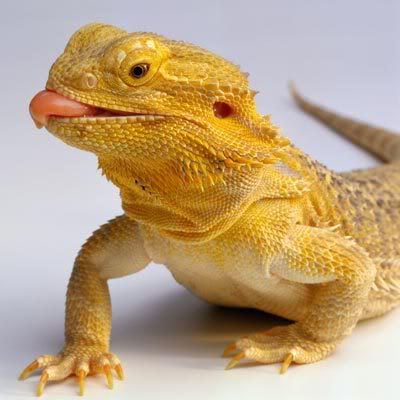The Fascinating Life of Bearded Dragons: A Beginner's Guide to Understanding their Average Lifespan
The Average Life of Bearded Dragon: What You Need to Know

Bearded dragons are popular pets that have gained a reputation for being friendly, curious, and easy to care for. These reptiles are native to Australia, and can thrive in captivity with proper care and nutrition. One of the most important factors to consider when taking care of a bearded dragon is its lifespan. In this blog post, we will discuss everything you need to know about the average life of bearded dragons, and how to give them the best possible care to ensure they live a long and healthy life.
What is the Average Lifespan of a Bearded Dragon?
The average lifespan of a bearded dragon is 10-15 years. However, with proper care and nutrition, they can live up to 20 years or more. Factors that can affect the lifespan of a bearded dragon include genetics, gender, diet, habitat, and overall health.
What Can You Do to Help Your Bearded Dragon Live a Long and Healthy Life?
If you want your bearded dragon to have a long and healthy life, there are several things you can do to help. Here are some tips to keep in mind:
- Provide a proper diet: Bearded dragons are omnivores that require a balanced diet of insects, vegetables, and fruits.
- Keep their enclosure clean: Bearded dragons require a clean and sanitary environment to prevent illness and disease.
- Ensure proper lighting and heating: Bearded dragons need access to UVB lighting and a basking area with a heat lamp to regulate their body temperature.
- Handle them with care: Bearded dragons are sensitive creatures that can become stressed easily. When handling them, be gentle and avoid excessive handling, especially during brumation periods.
- Regular check-ups: Visit a veterinarian who specializes in exotic pets for regular check-ups and to detect any health issues early on.
What are Some Common Health Issues to Look Out For?
Like any other pet, bearded dragons can experience health issues that require medical attention. Here are some of the most common health issues to look out for:
- Metabolic bone disease: This is caused by a lack of calcium in the diet and can lead to weakened bones and deformities.
- Respiratory infections: Bearded dragons can develop respiratory infections if their enclosure is not properly ventilated or if they are exposed to cold temperatures.
- Parasites: Parasites such as mites and ticks can infest a bearded dragon and cause skin irritation and other health issues.
- Impaction: This occurs when a bearded dragon ingests a foreign object that causes a blockage in the digestive system.
- Liver disease: Liver disease can occur in bearded dragons that are fed a diet that is high in fat and protein.
Conclusion
In conclusion, understanding the average lifespan of a bearded dragon is essential for providing the best possible care for your pet. By following the tips mentioned above and staying vigilant for any signs of health issues, you can help ensure that your bearded dragon lives a long and healthy life. Remember, proper nutrition, housing, and regular veterinary care are the key to a happy and healthy bearded dragon.

